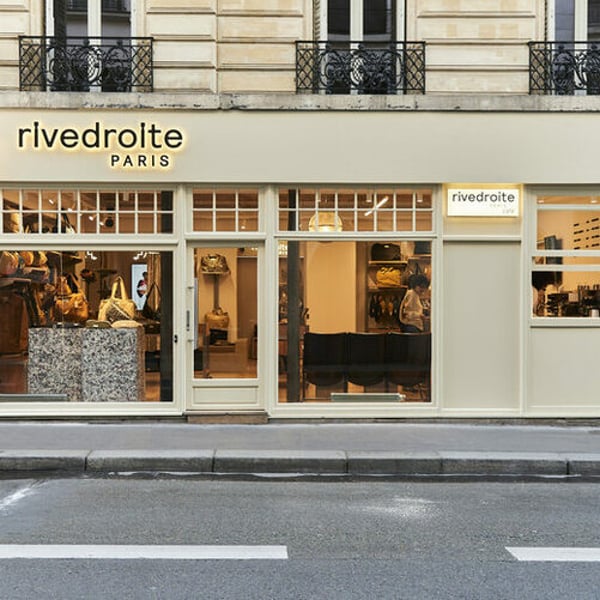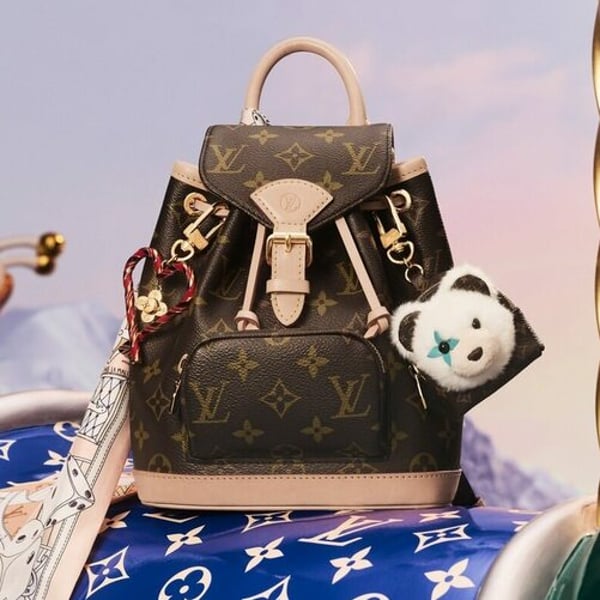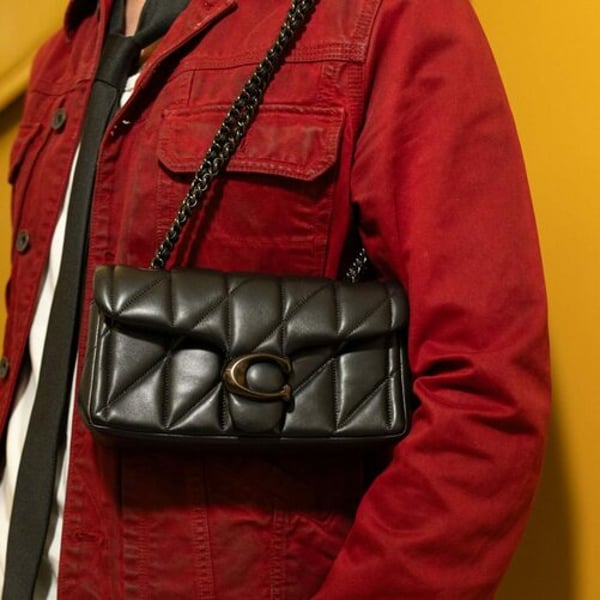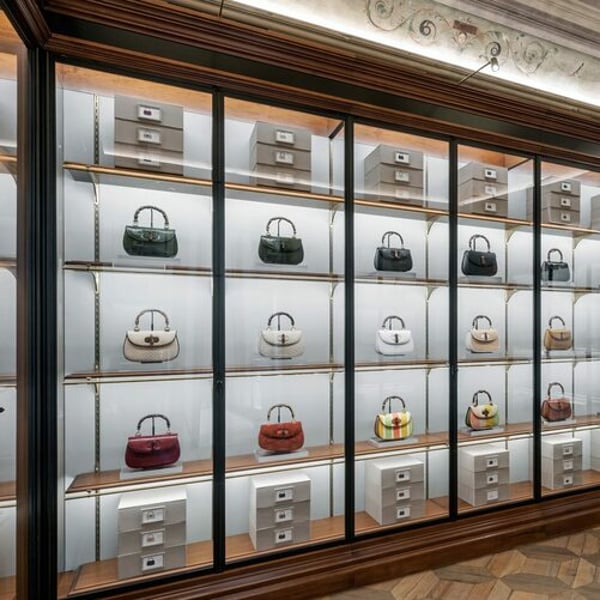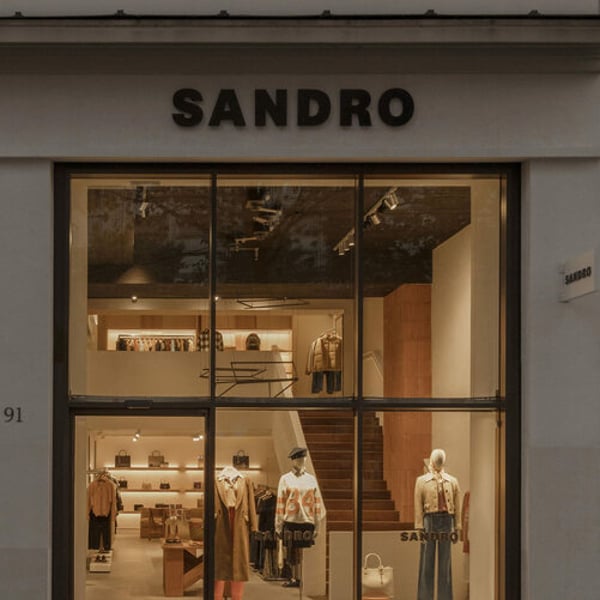One eco-friendly brand set to make an impact in Cannes this month is Rivedroite, whose second store in Paris near the Louvre has become a proper destination.
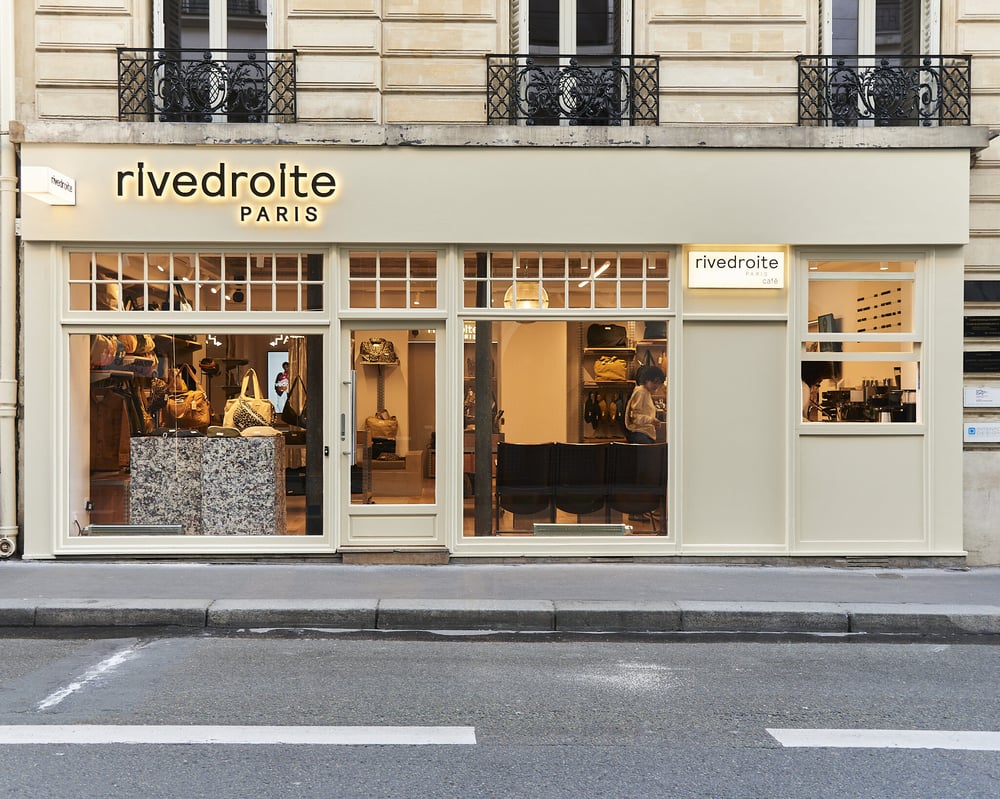
For this year’s festival, Rivedroite created the jackets and T-shirts for staff at the Gala beach club on the Croisette, following on from working with bustling French hotel chain Accor.
In its nine years of existence, the brand has become a successful private label supplier for beauty companies in L’Oréal that want pouches made from recycled materials, while also producing bags for high-profile labels within LVMH and Kering.
“They can be corporate gifts or even for internal events, for brands, restaurants, and hotels. We want to prove it is feasible to make cool products here in Europe or close by. You don’t have to go to China,” explains Yasmine Auquier Buron, who founded Rivedroite with her sister Sofia and pal Aurélie Jansem.
Though the heart of the brand is its second store at 10 rue de Richelieu, just 100 yards from the world’s most popular museum, the Louvre—which has over nine million annual visitors—it is their mission that truly defines Rivedroite. The boutique opened last November, just as the City of Paris began extensive renovations on the street, turning a busy car thoroughfare into a far more charming strip of restaurants, cafés, and cool boutiques—from Maison Margiela to the latest iteration of concept store Merci.
“We wanted a place where you feel what Rivedroite is all about—sustainable hedonism. It’s a joyful lifestyle brand, not just a bag brand. Where the joy of buying a cool new product is boosted by knowing it’s from a clean supply chain. We want no compromises between sustainability and happiness,” insists Jansem.
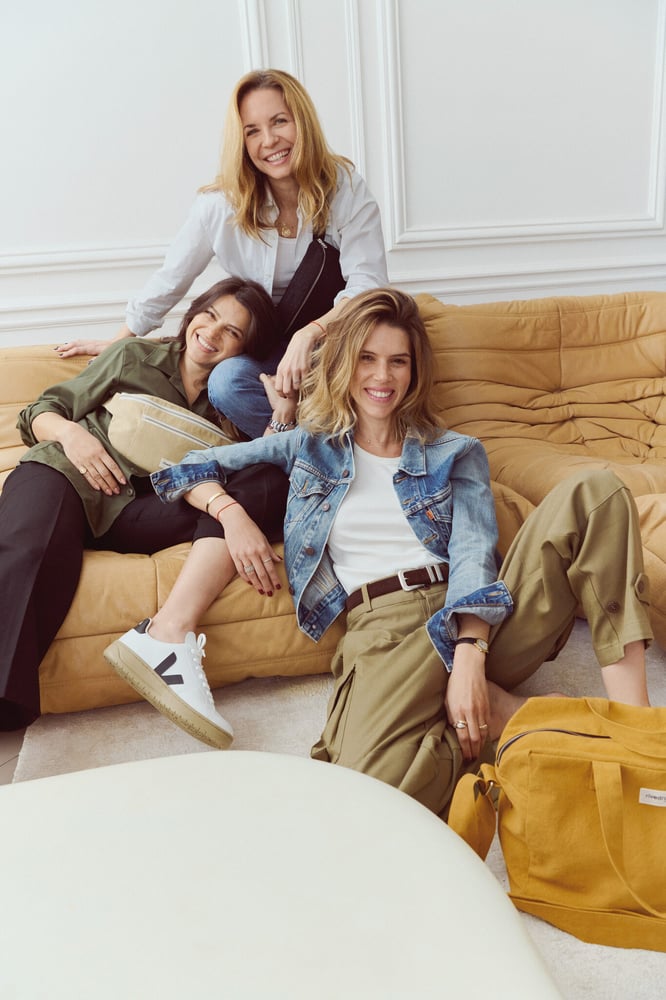
The store boasts a coffee bar and a rich vinyl record collection, where clients can hang out over a cappuccino sitting on 1950s cinema stall chairs. Cleverly fitted out with upcycled plywood shelves, a mid-century Dutch glass globe chandelier, and display units made of compressed blocks of cotton and denim from Fabrik, it also includes a customization space and a repair center in the basement.
Their hip, no-frills space includes the brand’s cult sweatshirts reading Paris Is My Hometown; workerist denim jackets with patch pockets; and a slew of bags—totes, satchels, barrels, and even laptop pouches in animal prints.
Rue Richelieu is three times the size of their debut 38-square-meter boutique at 95 rue Vieille du Temple in the Marais. There is little pain at the cash register: denim Barbès jackets cost €120; recycled cotton leopard print 24-hour bags sell for €100; cult sweatshirts are the same.
Yasmine worked for nearly ten years at L’Oréal, helping to set up its luxury division in Morocco, where sister Sofia lives and where they hatched the idea of a brand based on circularity—linking up with Jansem, ex-Clarins and Yves Rocher, to create the smartly named and easy-to-remember Rivedroite.
In a sense, Rivedroite is the latest example of France’s ability to invent happening brands and to differentiate them—since Rivedroite is much more about the funky 10th and 11th arrondissements of Paris, and not the rich and pampered 8th.
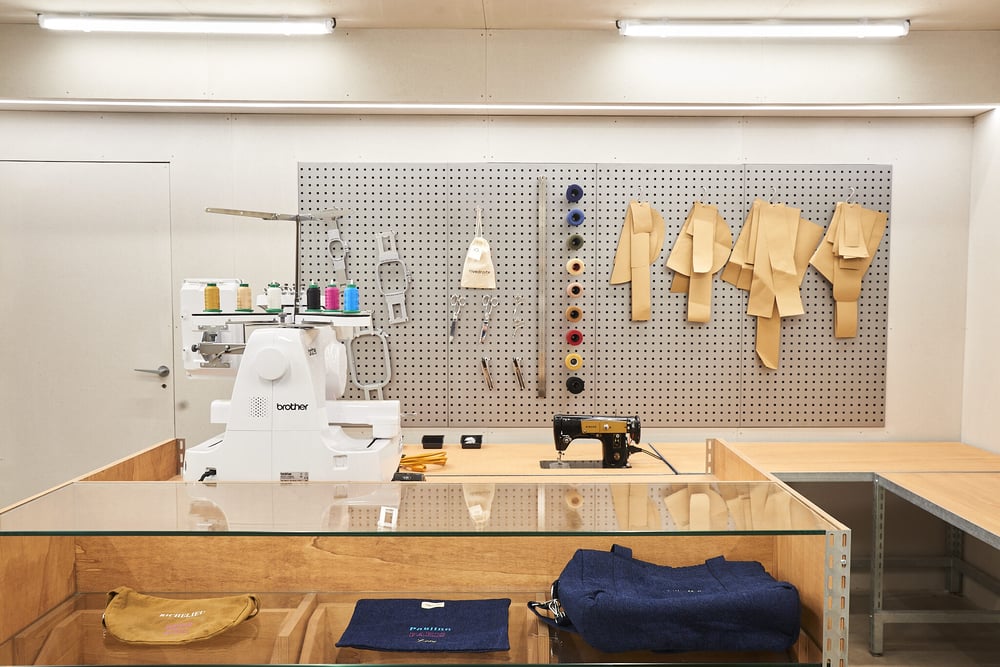
“We represent the upcoming and noisy part of Paris, like Shoreditch, Brooklyn, and Kreuzberg,” smiles Aurélie.
The brand stands out for its unique eco-sustainable business model. Rivedroite buys and recycles cotton or collects denim deadstock and stonewashes the fabric without chemicals in Morocco, the base of nearly all their production.
“Morocco is the nearest place to Europe where they make a lot of denim. And because water is so precious there, they use remarkably little in the production process,” insists Yasmine, who visits Morocco most months.
“China was never an option for us. First, it’s too far, and secondly, the supply chain is opaque. Our suppliers are transparent, and that means we can trace every batch of fabric we get,” she continues.
Before Aurélie adds “Morocco is also just 14 kilometres south of Europe. Supplies that leave there on Saturday morning at 10:30 a.m. arrive in Paris on Wednesday at 9 a.m.”
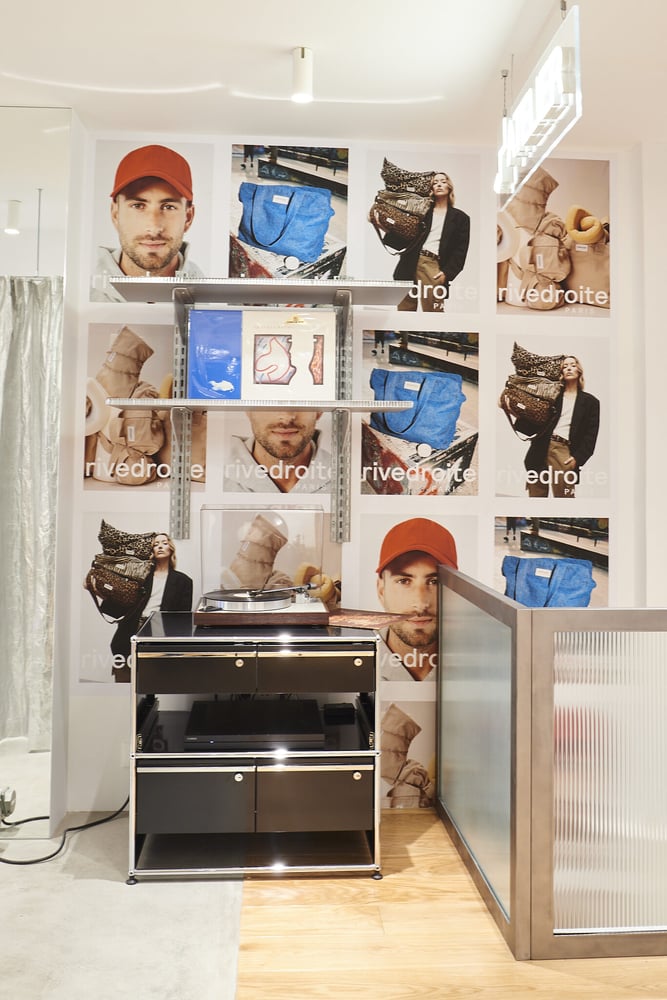
Rivedroite is not manufactured in France, as the cost is 2.5 to 4 times higher. The brand is socially inclusive and helps channel microcredits to small groups of its suppliers to create their own garment-making fabric companies. Meanwhile, 1 % of revenue goes to charity, which is sourced from occasional sales.
Chic, cool, but hard-headed, the trio has made Rivedroite profitable from the beginning. Three years ago, the brand sold in 80 sales points. This year, it retails in over 400 stores in 27 countries. Last week, a store in Chile ordered products; last month, a boutique in Thailand did too. Their key markets, though, are France, Spain, Belgium, and the USA. In the latter, they avoid department stores but sell to concept stores for the whole family and female apparel boutiques. Annually, Rivedroite is now close to €10 million in annual turnover.
“Our goal is to make things right and to make some money, while making fashion part of the long-term solution,” concludes Yasmine.
Copyright © 2025 FashionNetwork.com All rights reserved.
